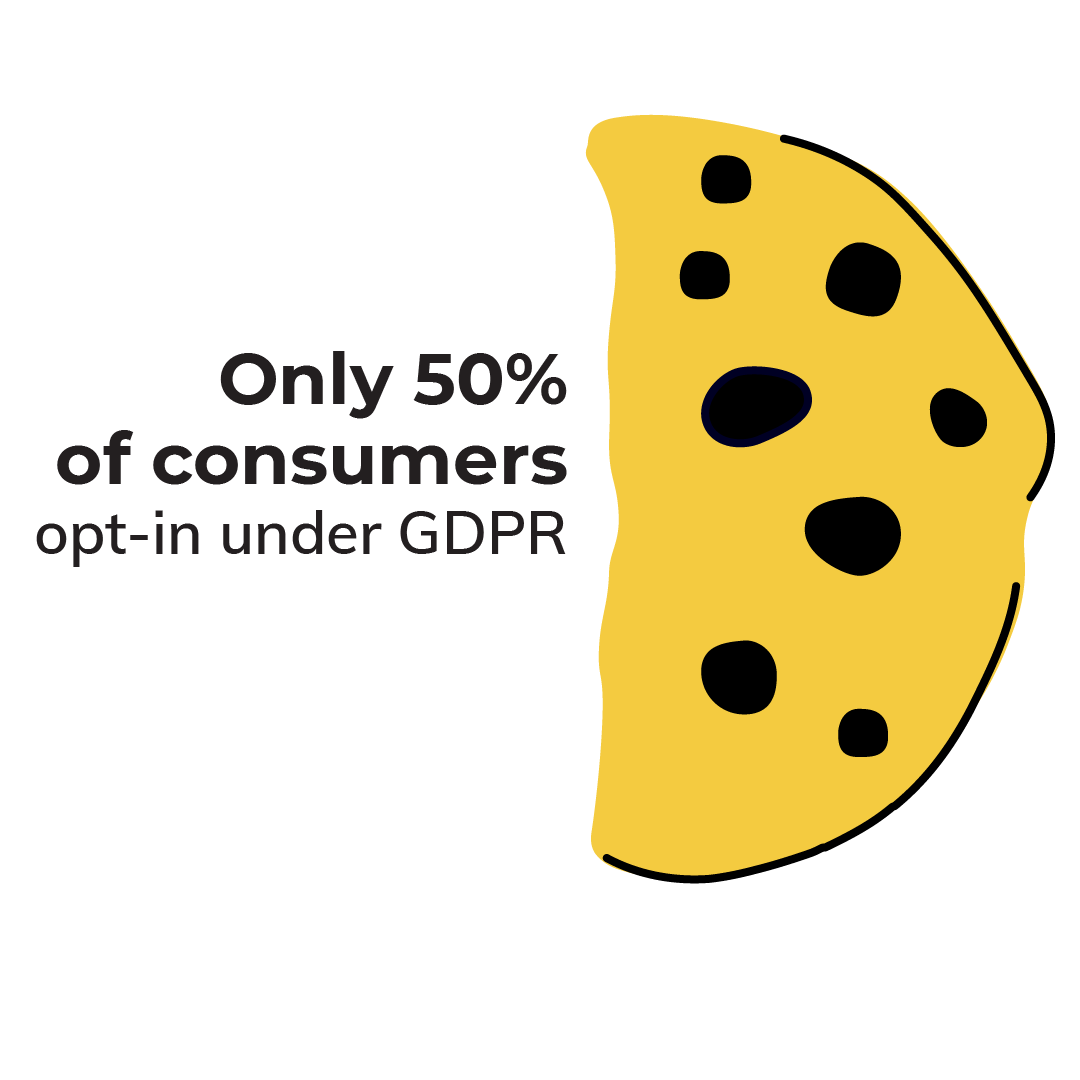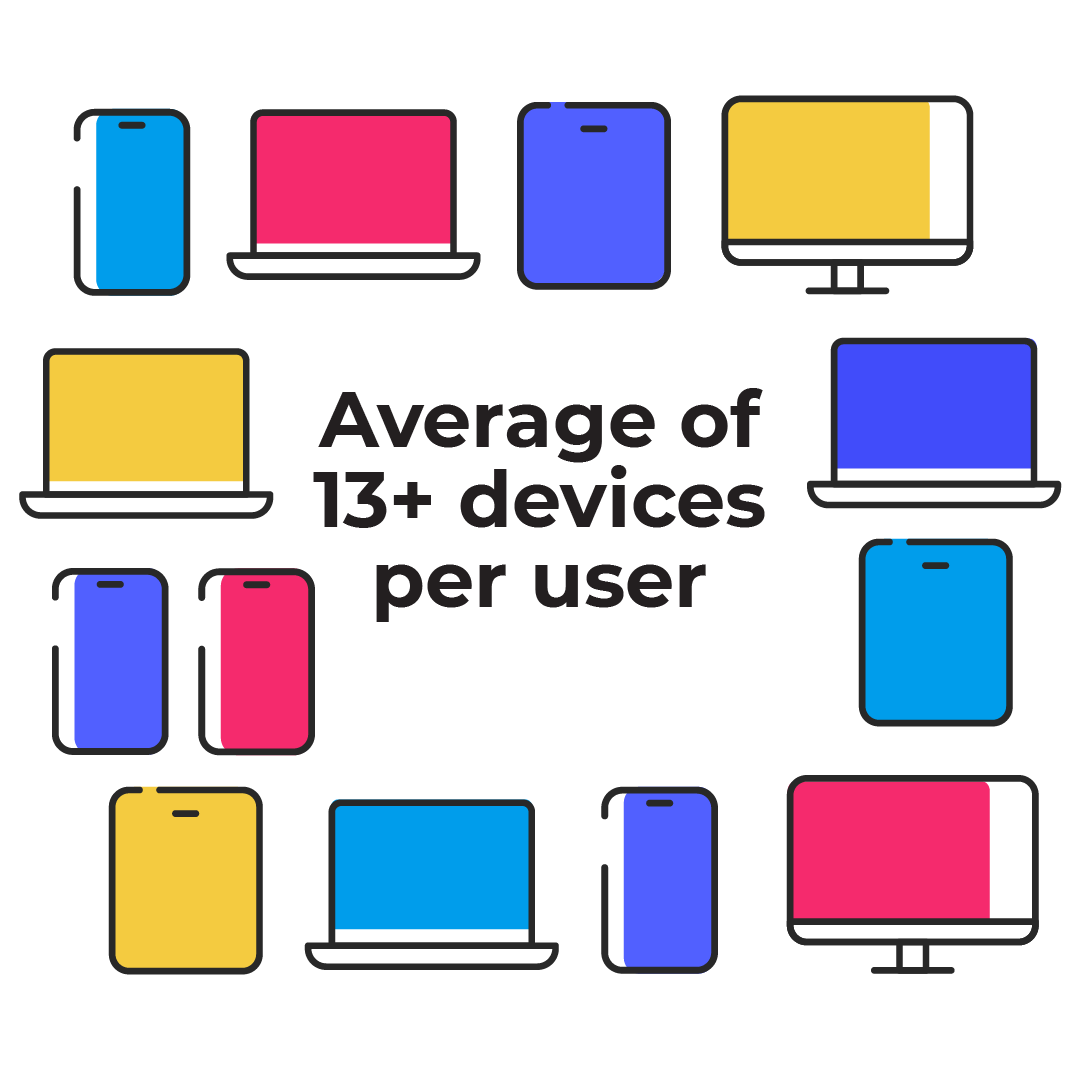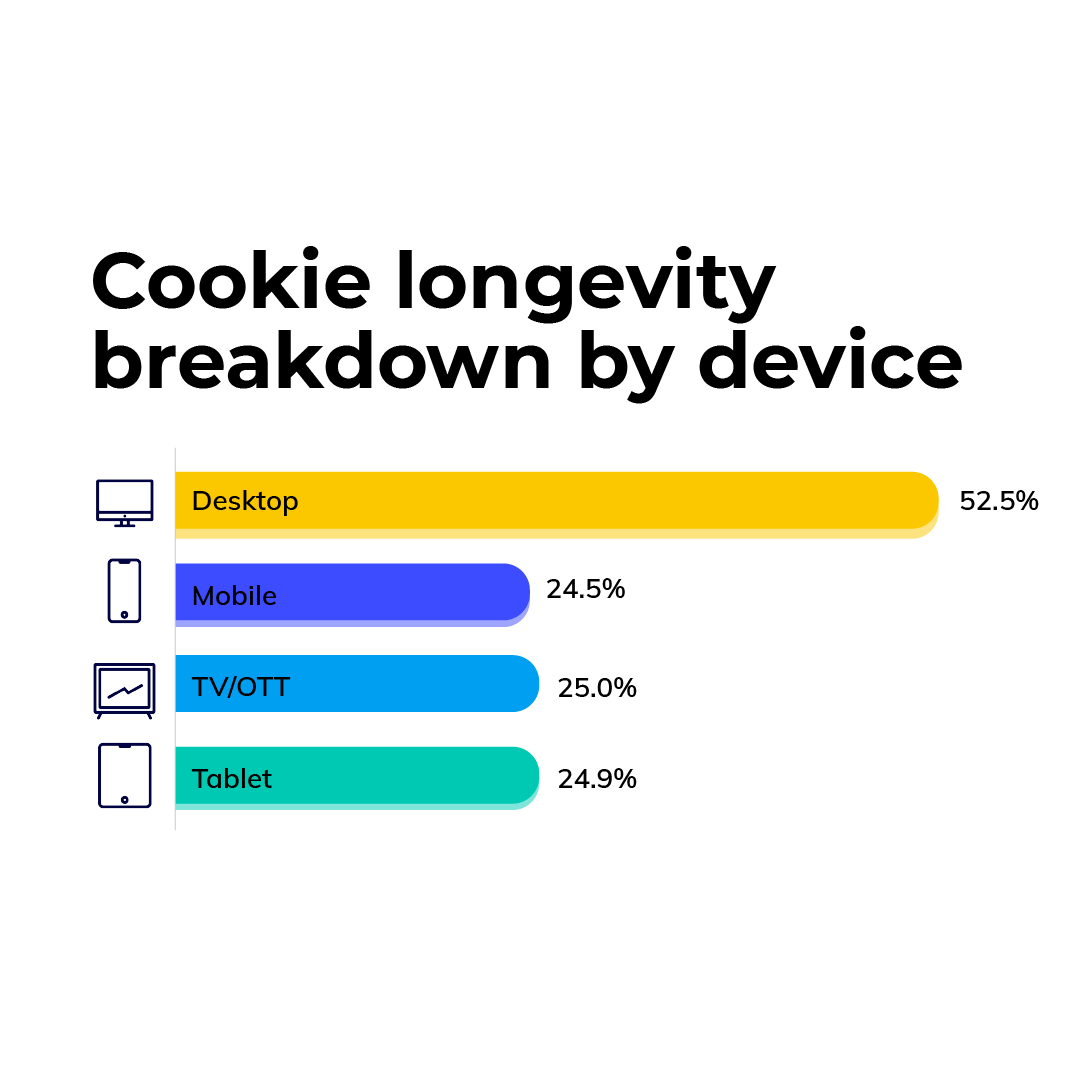


Google’s latest announcement might make some advertisers feel secure with cookie-based strategies, knowing that Chrome commands a 66% market share with its browser. However, the reality is that cookies have consistently proven to be unreliable. Although Google’s decision to continue supporting third-party cookies may extend their lifespan, it doesn't solve the significant reliability issues they present.
The challenges:
- User consent rates: Only 50% of consumers opt-in under GDPR, and with Chrome’s new consent rules, expect even smaller data pools for analysis and personalization. (Source: Flashtalking)
- Cookie longevity: The shelf life of cookies is diminishing, with only 32% of impressions associated with a cookie ID that’s been present on a device beyond 7 days. (Source: Flashtalking)
- Cross-device blind spots: With an average of over 13 connected devices per user, cookie-based marketing often relies on fragmented and inaccurate user profiles, missing crucial cross-device connections. (Source: Statista)
- The growing gap: As time spent on inherently cookieless platforms like Connected TV (CTV) and social media increases, the gap in cookie tracking widens, exacerbating inaccuracies in measurement and personalization. (Source: eMarketer, Statista)



How must advertisers adapt?
Marketers can no longer depend solely on cookie data. Instead, they must integrate a variety of identification methods to preserve the accuracy of their measurement and personalization strategies.
Flashtalking stands at the forefront of this shift with its multi-ID ad serving technology. This innovative solution seamlessly combines authenticated, probabilistic, cohort-based, and cookie-based identifiers into a cohesive strategy, ensuring robust and precise targeting for both measurement and personalization. Embrace Flashtalking's technology to stay ahead in a multi-ID world.
Learn more
Please reach out to learn more about how Flashtalking’s multi-ID ad serving solutions can enhance your digital marketing strategy.







